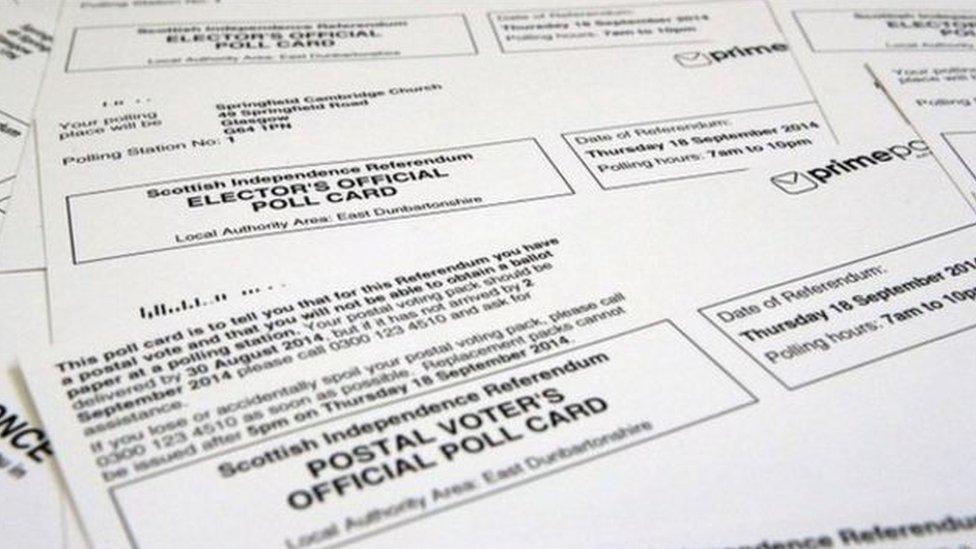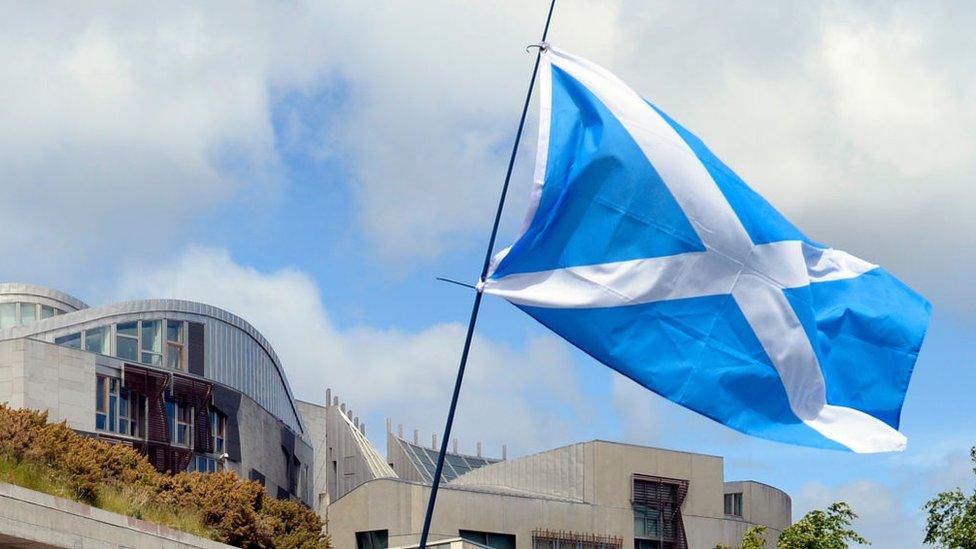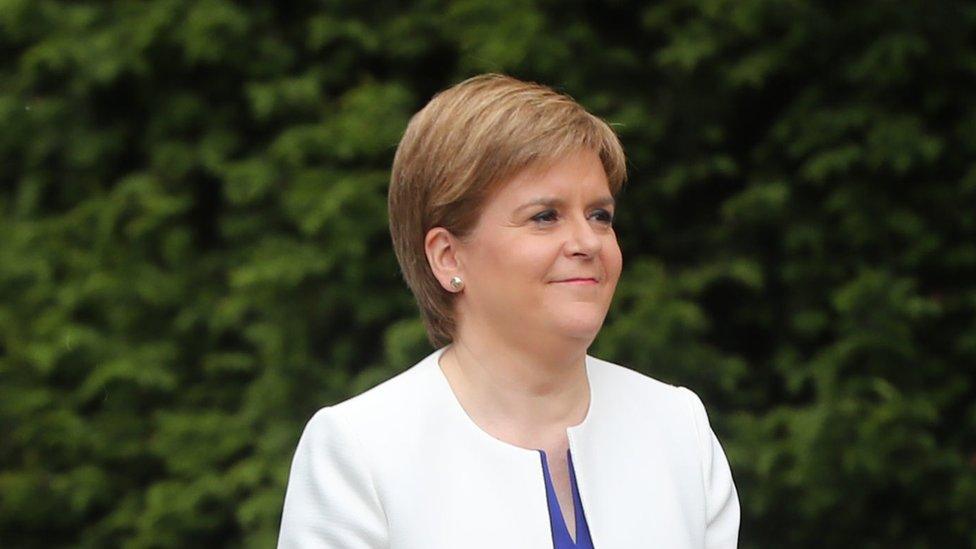Electoral Commission test 'not required' for indyref2 question
- Published
- comments

Scottish ministers may not need to consult the Electoral Commission when setting the question for a new independence vote, officials have said.
The commission has previously "tested" the question for any referendum.
But officials said new legislation at Holyrood "would not require" this kind of test if the question were a repeat of the one used for the 2014 poll.
First Minister Nicola Sturgeon wants to hold a referendum in the second half of 2020, but has not finalised her plans.
The Referendums (Scotland) Bill was introduced at Holyrood to establish the framework for any future vote, and could be used to facilitate "indyref2" should Ms Sturgeon seal an agreement with the UK government over holding one.
However, the bill has been criticised by the pro-UK opposition parties, who say it gives too much power to ministers and diminishes the say given to bodies like parliament and the Electoral Commission.
Holyrood's finance and constitution committee is leading initial scrutiny of the bill, and took evidence from government officials about what role parliament would have in the process and what rules it would set.
The bill is not specifically geared towards any particular referendum, but would create powers for ministers to set the question or date for a vote via secondary legislation, which would be voted on by MSPs.
Ms Sturgeon has said she wants to get an agreement with the UK government similar to that underpinning the 2014 referendum before she moves for a new vote.

The Scottish government says the 2014 referendum provides "clear precedent" for a question
The Electoral Commission signed off on the referendum question in 2014, which offered "Yes" and "No" answers to the question of "should Scotland be an independent country?"
However, two years later the body rejected a yes/no approach for the EU referendum because the proposed question asked whether the UK "should remain a member of the European Union". They said there were fears this was "not balanced", and instead recommended the question ultimately used, which mentioned both "leave" and "remain".
The Referendums (Scotland) Bill as it stands specifies that referendum questions should be tested by the Commission - unless the question is one which has previously been tested.
Penny Curtis, deputy director of elections at the Scottish government, told the committee that "the framework wouldn't require ministers to get the commission to test the question again, if they were seeking to use the same question again".
She said: "The policy intention there is that where questions have already been tested, have been used and are familiar with voters and are understandable to voters, is not to put a requirement in there to test again."
She told members that this was partly because testing was "quite expensive", potentially costing more than £100,000, but chiefly so that nothing "gets in the way of voter intelligibility".
Labour's James Kelly said "there will be an issue about that".
Parliamentary scrutiny
The officials also faced questions from Tory Adam Tomkins, who asked whether the approach of setting questions via secondary legislation would "restrict the amount of time that parliament can scrutinise" them.
Ms Curtis said this was "absolutely not the intention" of the bill, saying parliament would still be able to scrutinise the orders.
And SNP MSP Tom Arthur said there would be an "extensive period of consultation with the Electoral Commission" as well as weeks of consideration by both the delegated powers committee and the constitution committee, and votes of all MSPs.
When asked about the Electoral Commission issue at the time the bill was published, the Scottish government said the 2014 referendum "provides clear precedent for a simple, straightforward and understandable question".
- Published29 May 2019

- Published27 May 2019
